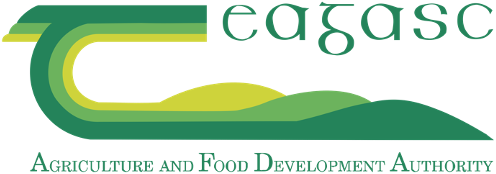Data and Resources
Resource Download
-
Citizen Scientist metadata_v8_kefir4allCSV
-
Evaluation form - Teachers_kefir4allXLSX
-
Evaluation form_kefir4allXLSX
-
fermentation_survey_mk_kefir4allTXT
-
fermentation_survey_wk_kefir4allTXT
-
kefir4all_sample_metadata_v2_kefir4allCSV
-
personalised_comments_evaulation_form_kefir4allXLSX
-
Teagasc_kefir4allXLSX
-
READMETXT
Additional Info
| Field | Value |
|---|---|
| Title | Kefir4All A citizen science initiative |
| License | CC-BY-NC | Teagasc Department | Food Biosciences Research |
| Teagasc Programme | Food |
| Description | The Kefir4All project and the associated engagement activities were evaluated through a series of surveys. The datasets are results from survey and evaluation measures from the Kefir4All initiative, which used kefir fermentation as a tool to engage the public and second-level students with microbiology. It includes records of citizen science participation, educational events, and engagement materials associated with raising awareness of microbes in food systems. |
| Language | English |
| Principal Investigator (PI) | Dr Paul D. Cotter |
| Principal Investigator (PI) email | paul.cotter@teagasc.ie |
| Principal Investigator (PI) ORCID | https://orcid.org/0000-0002-5465-9068 |
| Data creator(s) |
|
| Geographic coverage | The study was conducted in Ireland, centered around Teagasc Moorepark. Co. Cork and involving local schools and public participants from that region. |
| Digital Object Identifier (DOI) | doi.org/10.82253/D161-VN90 |
| Citation | Walsh, L. (2025). Kefir4All A citizen science initiative [Dataset]. Teagasc - The Irish Agriculture and Food Development Authority. https://doi.org/10.82253/D161-VN90 |
| Rights notes | https://creativecommons.org/licenses/by-nc/4.0/ |
| Related resources |
|
| Equipment used | SurveyMonkey |
| Provenance information | Our study included five surveys: “Workshop Survey”, “Getting started workshop”,“Fermentation survey”, “Project completion survey – Citizen Scientists” and “Project completion survey – Teachers” all constructed using SurveyMonkey. Students/members of the public were asked to complete the “Workshop Survey”, at the end of our recruitment workshop; which includes opinions provided by general members of the public who did not subsequently take part in the study. The “Workshop Survey” examined the educational effect on students as a result of attending a 1 hour workshop. Furthermore the “Workshop Survey” assessed the pre-existing microbiology- and fermentation-related knowledge of the participating citizen scientists. The “Fermentation survey” was used to collect metadata about each fermentation process completed by the citizen scientists. Both the “Project completion survey – Citizen scientists” and “Project completion survey – Teachers” primarily examined the educational effect on citizen scientists as a result of taking part in the project and the personal accounts of the Citizen scientists and teachers respectively, relating to improvements and or strengths of the project. Citizen scientists were asked to complete the “Fermentation survey” throughout the project and the “Project completion survey – Citizen scientists” at the end of the project. Coordinators of the Kefir4All project were asked to complete the “Project completion survey – Teachers” at the end of the project. All survey responses were analysed qualitatively. Citizen scientists were asked to complete a survey at the start of the project (https://www.surveymonkey.com/r/KefirLocation) to record information about their household environment, and then a separate survey relating to each individual fermentation (https://www.surveymonkey.com/r/KefirFermentation) to provide metadata concerning the fermentation process. The citizen scientists were asked to provide both kefir grain and liquid samples after the first week of fermentation and every four weeks thereafter, for up to 21 weeks. |
| Time of data collection | 2021-2022 |
